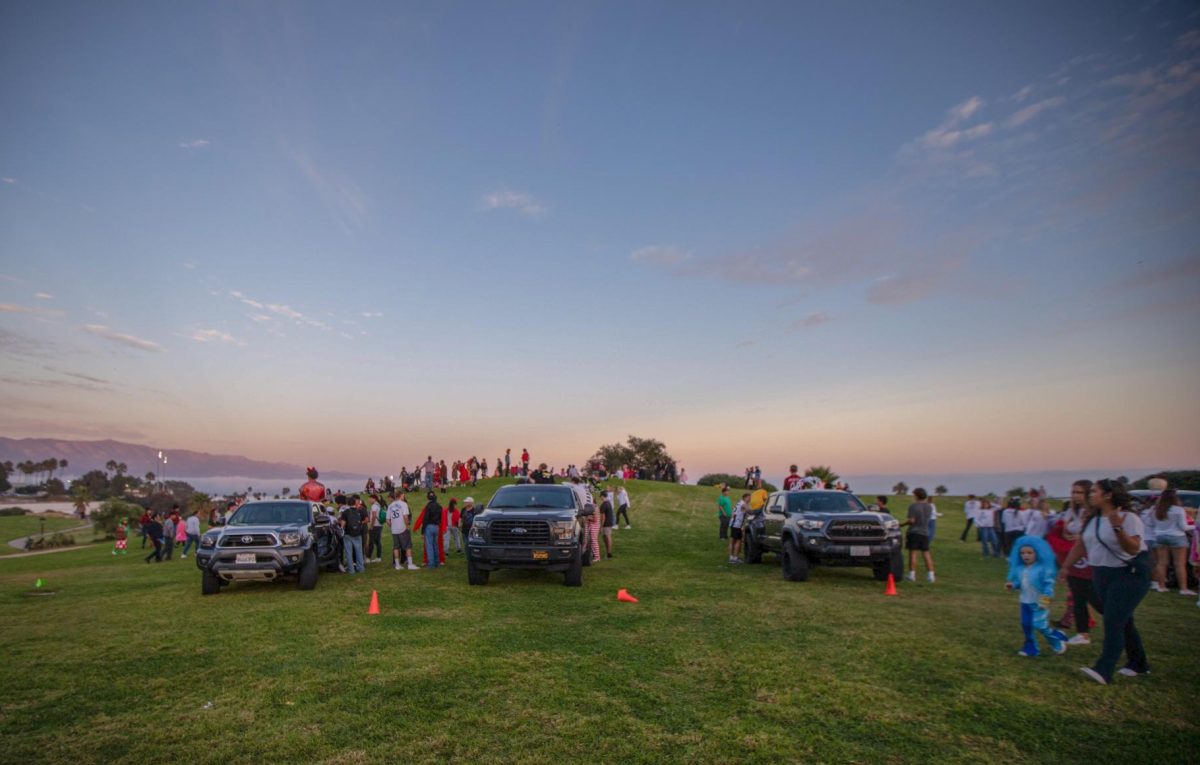Award winning journalist Anita Pratap spoke about the importance of communication in solving terrorist conflicts, before some 250 listeners at Campbell Hall on Thursday.
The author of “Island of Blood: Frontline Reports from Sri Lanka, Afghanistan and other South Asian Flashpoints,” highlighted the “racial and historical prejudice, religious and sexual discrimination, and political and social repression” that forms terrorism today.
“Terrorism never erupts over night,” Pratap said. “It is a gradual culmination of anger and frustration. In most of these situations there were enough warning signals, so the government could have nipped it in the bud if they had been sensitive to the situation.”
“911 brought terrorism into the focus of the media,” said Pratap.
“Grievance is the root of terrorism,” said Pratap. “It must be dealt with but most often it is dealt with too late.” While stressing that this is based purely on what she has seen in the field, Pratap talked about three building stones of grievance: pride, poverty and prejudice.
During 20 years covering terrorism in South Asia, Pratap found “well-educated and well-bred” individuals attracted to terrorism for one reason. “Their pride has been wounded and they feel like their lives are not too much to put on line to defend the national honor and the community’s pride,” Pratap said.
“There must be a prime need for good governance in these communities,” she said, noting the importance of “approaching terrorism holistically,” instead of with military force.
Need for healthcare, education, and employment must be taken care of, Pratap argued.
Since poverty is one of the driving forces of the conflicts, terrorism must be tackled on an economic level. “The government must make it so that people have too much to lose if they take to violence,” said Pratap.
On the subject of prejudice, Pratap spoke of how clergy in conflict areas misuse religion to rally the support of the community, and “harvest souls, to regain control because they know it strikes a cord with the people,” Pratap said. “Time has really come for all these religions to stand up and nail these lies and misinterpretations that these bigots have spread. Ignorance must be fought with knowledge,” she said.
One of the few female reporters in her field in 1979, Pratap faced difficulties.
“Often, in conflict situations, we find that media plays a negative and devastating role,” said Pratap, pointing out how media pushes fighting parties further apart by playing an active role instead of being neutral. The media underplays violence and “express the government’s point of view not because they are ordered to, but because of their own patriotism,” she said. “Media must give an equal opportunity for both parties of a conflict to ventilate their thoughts.”
Pratap stressed the importance of knowledge and participation. “No longer do we have the luxury to live in our cocoon, isolated from the situation in the rest of the world,” she said. “If you don’t want to see it, it will come to visit you. 911 showed that.”
“All that it takes is one second for life to change irreparably and 911 showed that,” she said.
Journalist takes on terror war
Tamara Afzoud, Channels Contributor
December 18, 2003
Story continues below advertisement
More to Discover







